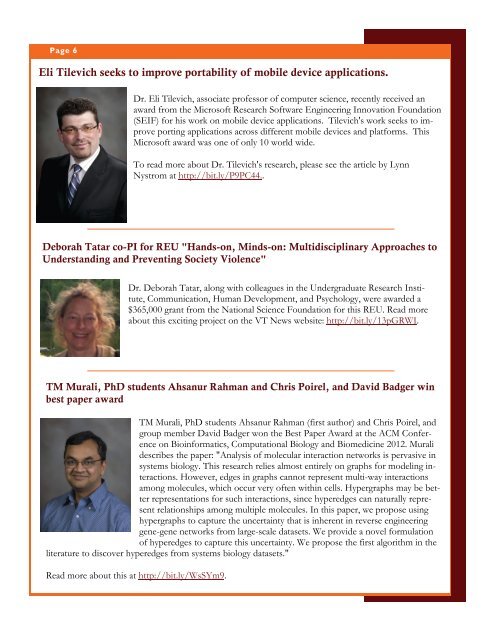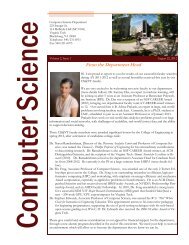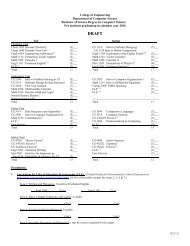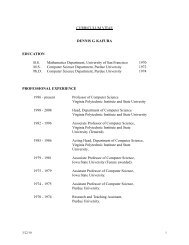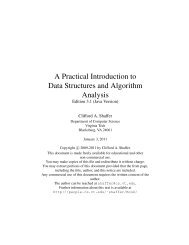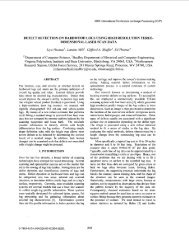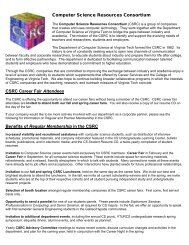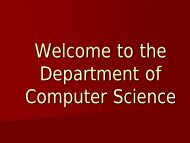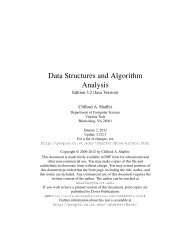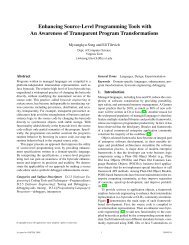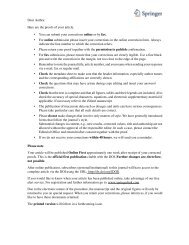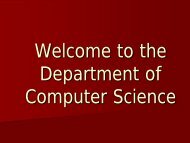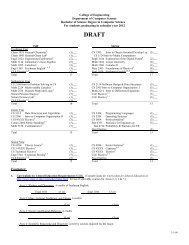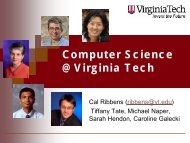Winter 2013 newsletter - Computer Science - Virginia Tech
Winter 2013 newsletter - Computer Science - Virginia Tech
Winter 2013 newsletter - Computer Science - Virginia Tech
Create successful ePaper yourself
Turn your PDF publications into a flip-book with our unique Google optimized e-Paper software.
Page 6Eli Tilevich seeks to improve portability of mobile device applications.Dr. Eli Tilevich, associate professor of computer science, recently received anaward from the Microsoft Research Software Engineering Innovation Foundation(SEIF) for his work on mobile device applications. Tilevich's work seeks to improveporting applications across different mobile devices and platforms. ThisMicrosoft award was one of only 10 world wide.To read more about Dr. Tilevich's research, please see the article by LynnNystrom at http://bit.ly/P9PC44..Deborah Tatar co-PI for REU "Hands-on, Minds-on: Multidisciplinary Approaches toUnderstanding and Preventing Society Violence"Dr. Deborah Tatar, along with colleagues in the Undergraduate Research Institute,Communication, Human Development, and Psychology, were awarded a$365,000 grant from the National <strong>Science</strong> Foundation for this REU. Read moreabout this exciting project on the VT News website: http://bit.ly/13pGRWI.TM Murali, PhD students Ahsanur Rahman and Chris Poirel, and David Badger winbest paper awardTM Murali, PhD students Ahsanur Rahman (first author) and Chris Poirel, andgroup member David Badger won the Best Paper Award at the ACM Conferenceon Bioinformatics, Computational Biology and Biomedicine 2012. Muralidescribes the paper: "Analysis of molecular interaction networks is pervasive insystems biology. This research relies almost entirely on graphs for modeling interactions.However, edges in graphs cannot represent multi-way interactionsamong molecules, which occur very often within cells. Hypergraphs may be betterrepresentations for such interactions, since hyperedges can naturally representrelationships among multiple molecules. In this paper, we propose usinghypergraphs to capture the uncertainty that is inherent in reverse engineeringgene-gene networks from large-scale datasets. We provide a novel formulationof hyperedges to capture this uncertainty. We propose the first algorithm in theliterature to discover hyperedges from systems biology datasets."Read more about this at http://bit.ly/WsSYm9.


